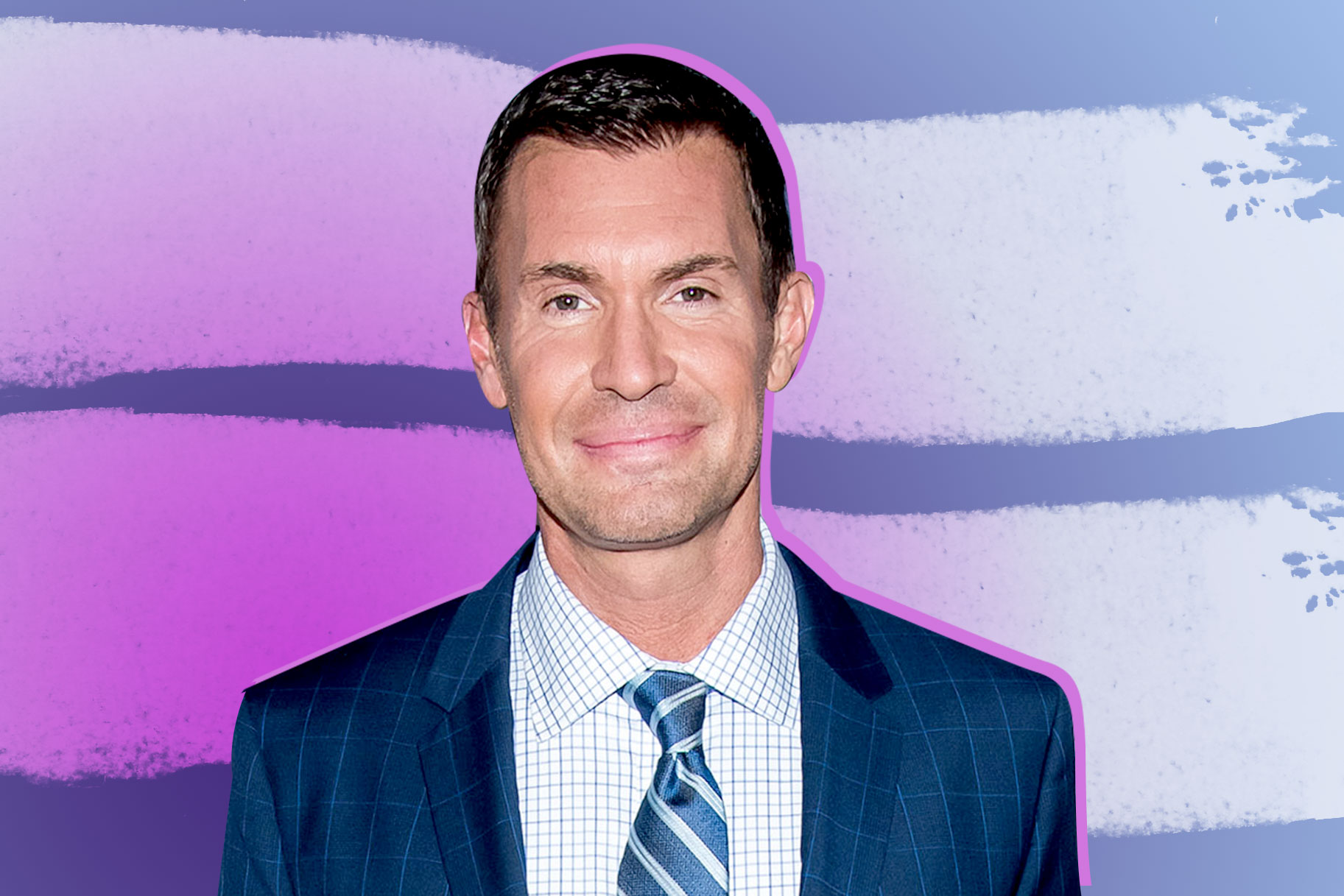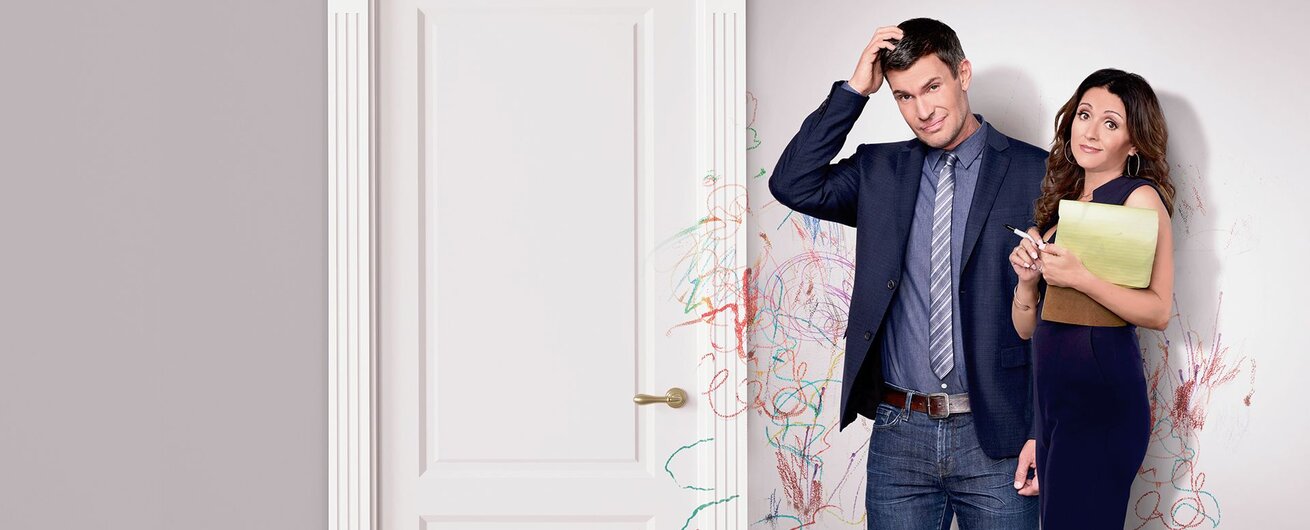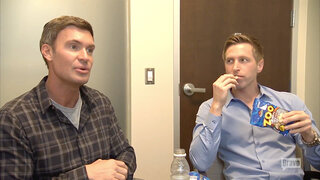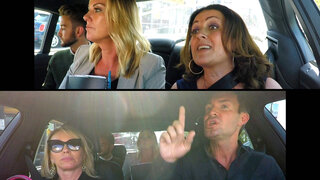
Create a free profile to get unlimited access to exclusive videos, sweepstakes, and more!
Jeff Lewis' "Inner Wounded Child" Is Very Real... But Can Also Be Controlled
“My inner wounded child showed up at the restaurant and said, ‘F--k off, Gage,'" Jeff said of his dinner date.

Jeff Lewis and Gage Edward may have moved too soon when they tried to have a peaceful dinner together this past weekend at the NoMad Hotel in Los Angeles. Instead, the former Flipping Out couple ended up leaving separately after Jeff stormed out.
He revealed on his Radio Andy show Jeff Lewis Live on Monday that if it had been a first date, he wouldn't have gone back for a second. Whoa: “Let’s put it this way, if it were a first date, I would not be going out with this person again, he said. “It was not a great date.”
The reason?
Again, according to Jeff, Gage began "lecturing" him. “I was on my best behavior,” Jeff said. “I sat there and I listened, and I listened, and I listened. And I’ve been listening, for the last three weeks, to all the terrible s--t I’ve done and said. And I guess there’s a part of me who feels like I deserve it. So I take it and take it and take it... I just wanted it to end. I just wanted to leave, 'cause I realized this was a really bad idea."
He said it totally fell apart when his "inner child" started showing, and he acted out as a result. “My inner wounded child showed up at the restaurant and said, ‘F--k off, Gage.' And [I] got up and walked into the lobby. Literally I just got to the point where I was like, ‘F--k off, Gage.' And I took a minute and I texted him, ‘I’m in the lobby, the car’s out front, I’ll take you home.’ And he just didn’t respond.”
They then left separately, with Jeff driving home and Gage calling an Uber.
Jeff’s "inner child" reared its ugly head because he was filled with emotions about the split and seeing his ex. So what exactly does that mean?
There have been many studies on the “inner child." "We all have one, it’s just a matter of keeping it happy and in check," says one study. That takes work.
“The purpose of competent Inner Child work is intended to help someone take responsibility for their current behavior by understanding and freeing themselves from the distortions of the past. Effective Inner Child work is about helping people in pain discover how early childhood experiences have had an impact on their everyday lives," the study continued.
There is a type of therapy called Redecision Therapy that aims to help people “to re-experience the emotional states in which they originally made the life-limiting decisions that interfere with their current effectiveness. During the process of this work, a mature self is often imagined as providing nurturing and protection to an imagined child self.”
Psychology Today reports that the inner child often appears as destructive behavior in adults, like the “impulsive quality of childish petulance or narcissistic temper tantrums. Or an infantile neediness, dependency, and dread of abandonment.”
“To begin with, the inner child is real. Not literally. Nor physically. But figuratively, metaphorically real. It is — like complexes in general — a psychological or phenomenological reality, and an extraordinarily powerful one at that,” PT reports. “But most adults are quite unaware of this. And this lack of conscious relatedness to our own inner child is precisely where so many behavioral, emotional and relationship difficulties stem from ... True adulthood hinges on acknowledging, accepting, and taking responsibility for loving and parenting one's own inner child. For most adults, this never happens. Instead, their inner child has been denied, neglected, disparaged, abandoned or rejected ... To become adults, we've been taught that our inner child — representing our child-like capacity for innocence, wonder, awe, joy, sensitivity and playfulness — must be stifled, quarantined or even killed. The inner child comprises and potentiates these positive qualities. But it also holds our accumulated childhood hurts, traumas, fears and angers ... Adults are unwittingly being constantly influenced or covertly controlled by this unconscious inner child. For many, it is not an adult self directing their lives, but rather an emotionally wounded inner child inhabiting an adult body," PT continued.
First: ”One becomes conscious of his or her own inner child.” Jeff’s clearly done that. Next step? “What we didn't sufficiently receive in the past from our parents as children must be confronted in the present, painful though it may be... We should not as adults now expect others to meet all of these unfulfilled childhood needs. They cannot.”
Then, you have to try to relate to the inner child exactly like a good parent, “providing discipline, limits, boundaries and structure.”
By taking these steps, hopefully both the adult self and inner child can be satisfied.


















